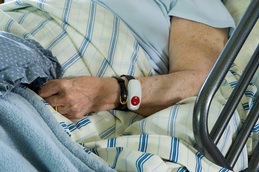Common prescription drug could prevent Alzheimer's in older people undergoing surgery

Statin has been found to prevent the negative effects surgery can have on brain function after initial successful tests on mice.
The drug, also known as atorvastatin and commonly prescribed for high cholesterol, decreases inflammation in the brain which can cause Alzheimer’s disease in people who have undergone surgery.
It is hoped statin could be used to reduce the negative effects people might experience when undergoing major surgery under anesthesia.
Dr Doug Brown, director of research and development at Alzheimer’s Society said: “We’ve known for some time that having an operation can have an effect on people’s memory and sometimes trigger the onset of Alzheimer’s disease. The potential for a treatment that could prevent this from happening is positive and these findings are promising, but further research is now needed. “Further studies will give us a better understanding of the biology behind this and determine whether atorvastatin may be a good candidate drug to test in the elderly undergoing surgery. Ultimately clinical trials are needed to see if the statin could indeed protect our brains too, as well as in mice.”
The research indicated pre-treating mice with statin improved memory for mice in days after surgery and protected neurons in the brain from the negative effects surgery can have on cognitive function.
Research into statin occurred in Imperial College London and lead researcher Dr Daqing Ma said: “Sometimes having an operation is unavoidable, especially for elderly people. We shouldn't ignore the potential side-effects such as memory impairment following surgery – these should be prevented or treated wherever possible. The strategy demonstrated in this study is a good attempt but further studies are needed before clinical trials can be initiated.”
Long term memory problems developed during surgery leads to postoperative cognitive dysfunction (POCD) that can turn into Alzheimer’s disease.
Over 65 year olds are predicted to become the largest group of people receiving surgery by 2020 causing the number of people at risk of developing POCD to rise dramatically.
Dr Brown continued: “Further studies will give us a better understanding of the biology behind this and determine whether atorvastatin may be a good candidate drug to test in the elderly undergoing surgery. Ultimately clinical trials are needed to see if the statin could indeed protect our brains too, as well as in mice.”
Latest News
 29-Jul-24
Dementia Bus gives carehome.co.uk staff insight into life with dementia
29-Jul-24
Dementia Bus gives carehome.co.uk staff insight into life with dementia
 01-Mar-24
Find out the top care homes in 2024
01-Mar-24
Find out the top care homes in 2024
 21-Mar-23
UK's top care homes in 2023 revealed
21-Mar-23
UK's top care homes in 2023 revealed
 03-Jan-23
carehome.co.uk launches free care helpline
03-Jan-23
carehome.co.uk launches free care helpline
 13-Dec-22
5 mins with Emily Whitehurst, chief operating officer for Constantia Healthcare
13-Dec-22
5 mins with Emily Whitehurst, chief operating officer for Constantia Healthcare